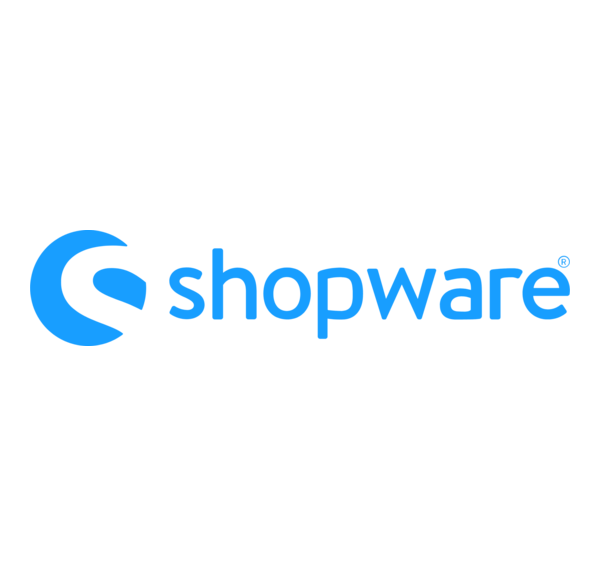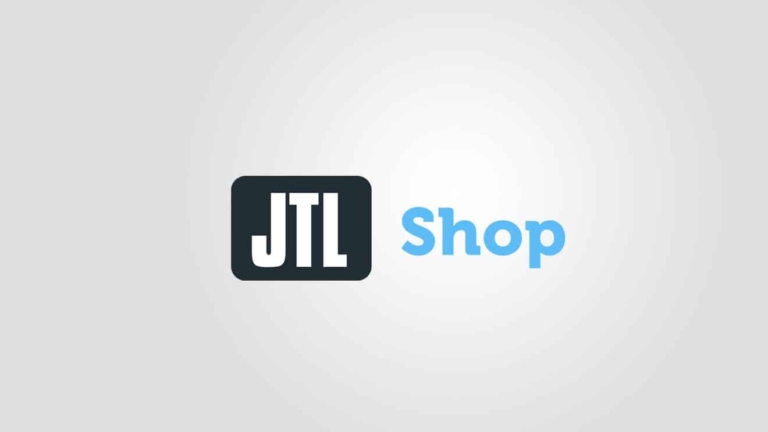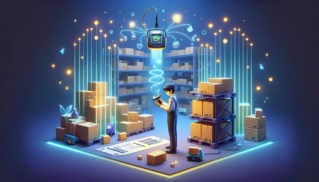Greetings! I'm Aneesh Sreedharan, CEO of 2Hats Logic Solutions. At 2Hats Logic Solutions, we are dedicated to providing technical expertise and resolving your concerns in the world of technology. Our blog page serves as a resource where we share insights and experiences, offering valuable perspectives on your queries.

Quick Summary
JTL-Shop excels for SMBs who need integrated ERP functionality through JTL-Wawi, while Shopware offers superior design flexibility and customisation for enterprises. Choose the former for streamlined inventory management; choose the latter for scalable, highly customisable online stores.
Selecting an e-commerce platform is a crucial choice for any online shop. It will define your customer experience, assess your capabilities, and ultimately impact your financial performance. Shopware and JTL-Shop are two of the players in this market. Each of them has unique benefits.
What is the ideal e-commerce platform for my company?
How can I decide between JTL and Shopware?
This comprehensive JTL Shopware comparison will help you navigate the nuances and confidently make the best JTL Shopware decision, moving you closer to finding the ideal e-commerce solution for your online business.
What are Shopware and JTL-Shop, and what are their core strengths?
Before going into the in-depth comparisons, let us comprehend the nature of each platform and their advantages for e-commerce platform selection.
How does Shopware offer flexibility and customisation for online retailers?

Shopware is a versatile and feature-rich open-source e-commerce solution that is well-known for its customization options. It offers an extremely solid foundation for developing online shops with a scope for customizing the user interface. Online store owners looking for artistic control and flexibility to suit changing market conditions typically find Shopware themes and plugins most attractive.
Key Shopware Features:
- Modular architecture and an API-first approach enabling deep customisation
- Visual editor for creating “Shopping Experiences”
- Shopware design template library with 500+ themes
- Shopware ERP integration with third-party systems
- Advanced B2B and B2C commerce capabilities
According to industry analysis by 2Hats Logic, the platform offers over 3,500 Shopware extensions and a vibrant developer community, making it one of the most versatile solutions for Shopware scalability requirements.
Pro-Tip: If brand identity and a unique storefront design are paramount for your business, Shopware’s rich design options and flexibility will be a significant advantage for your best e-commerce solution for online business strategy.
Ready to explore Shopware’s design capabilities?
How does JTL-Shop integrate with JTL-Wawi for comprehensive e-commerce management?

JTL-Shop is a German-born platform that shines with its tight integration with JTL-Wawi, its comprehensive ERP system. For businesses looking for a complete solution that centralises inventory, order, and customer management, JTL Shop benefits significantly from this connection. It offers a streamlined approach, making it particularly attractive for small to medium-sized businesses (SMBs) seeking a user-friendly and robust platform.
JTL’s ERP Features Include:
- Comprehensive JTL inventory management with real-time synchronisation
- Advanced warehouse management and order fulfillment
- Multi-marketplace integration and automated listing management
- Integrated shipping solutions with carrier connectivity
- Centralised customer relationship management
- All controllable from the central JTL-Wawi hub
JTL Shop’s ease of use and integrated approach are notable JTL strengths, particularly for businesses prioritising operational efficiency over extensive customisation. The platform’s JTL user-friendliness reduces the learning curve significantly compared to more complex solutions.
What are the key differences between Shopware and JTL-Shop?
While both platforms are powerful, their core philosophies and functionalities diverge significantly. Understanding these differences is crucial for your JTL Shop vs Shopware comparison.
How do inventory management and ERP capabilities differ?
This is arguably the most significant differentiator. When comparing JTL-Wawi vs Shopware inventory, you’ll find substantial differences:
JTL Approach:
- Offers a natively integrated, comprehensive JTL ERP system for e-commerce
- Centralises inventory, orders, and customer data in one unified system
- Deep JTL Wawi integration streamlines multi-channel sales and marketplace connections
- Real-time stock synchronisation across all sales channels
- Advanced warehouse management with location tracking
- If your search query focuses on e-commerce inventory management, JTL-Wawi’s features are exceptionally robust
Shopware Approach:
- Provides basic Shopware inventory management functions out-of-the-box
- Relies heavily on extensions and integrations with third-party Shopware ERP integration systems
- Offers multi-inventory capabilities through premium extensions
- API-first approach enables flexible integration with existing ERP systems
- Doesn’t provide a native, all-in-one ERP solution like JTL-Wawi
Winner: JTL-Shop vs Shopware inventory scenarios heavily favour JTL for businesses needing comprehensive, integrated inventory management.
Warning: If you have complex inventory needs or a strong requirement for tightly integrated ERP functionality, relying solely on Shopware without a dedicated ERP integration might lead to operational inefficiencies and increased management overhead.
Which platform offers better design and user experience customisation?
Your online store’s aesthetics and navigability are crucial for conversions and brand differentiation.
Shopware Design Capabilities:
- Excels in Shopware design flexibility with extensive customisation options
- Wide array of customizable Shopware design templates (500+ themes)
- User-friendly visual editor for creating engaging “Shopping Experiences”
- Advanced Shopware UI/UX customization tools
- Empowers businesses to create unique, visually appealing storefronts
- Perfect brand identity alignment through comprehensive design freedom
- Mobile-first responsive design approach
JTL Design Options:
- Provides solid JTL Shop design options with functional focus
- Generally focuses more on JTL user-friendliness and ease of use
- Allows for layout tailoring and basic customisation
- Mobile-optimized responsive templates
- May not offer the same level of Shopware vs JTL customisation freedom
- Emphasises operational efficiency over visual complexity
Winner: Shopware vs JTL customisation clearly favours Shopware for businesses prioritising unique brand experiences and visual differentiation.
What are the pricing structures and scalability options for each platform?
Considering costs and future growth potential is vital for long-term e-commerce platform success.
- Free Community Edition: Perfect for startups and smaller businesses
- Rise Plan: €600/month (up to €100k annual revenue)
- Evolve Plan: €1,200/month (up to €500k annual revenue)
- Beyond Plan: €2,400/month (unlimited revenue)
- Additional Shopware costs for premium plugins and custom development
- Shopware’s architecture supports excellent e-commerce platform scalability
JTL-Shop Costs:
- Free JTL-Shop software download and installation
- JTL-Wawi pricing: €39.95/month (Starter) to €79.95/month (Enterprise)
- Extension costs vary by functionality and requirements
- Positions itself as a cost-effective e-commerce solution for SMBs
- JTL cost effective solution for businesses seeking all-in-one packages
Scalability Comparison: Both platforms support business growth effectively, with Shopware scalability favouring larger enterprises and international expansion, while JTL Shop scalability is optimised for SMB growth within the DACH region.
How do extensions and integrations compare for expanding functionality?
Shopware Extensions:
- Boasts a vast Shopware marketplace with 3,500+ Shopware plugins
- Comprehensive extension categories: SEO optimization, marketing tools, payment gateways, security
- API-first approach facilitates seamless Shopware ERP integration with third-party services
- Active developer community contributing innovative solutions
- Advanced CRM integration capabilities
JTL Shop Integrations:
- Offers a focused range of extensions within the JTL Shop integrations ecosystem
- Particularly strong in streamlining operations within the JTL environment
- JTL Shopify connector enables multi-platform selling
- Specialized German market solutions and local payment methods
- ERP-centric integration approach prioritizing operational efficiency
Winner: Shopware vs JTL integrations favor Shopware for variety and third-party connectivity, while JTL excels in ERP-focused, operationally-driven integrations.
Which e-commerce platform is the best fit for your business needs?
The “best” platform isn’t universal; it depends on your specific requirements, strategic priorities, and business model.
Is JTL-Shop ideal for small to medium-sized businesses needing integrated ERP?
For businesses with integrated inventory management and multi-channel sales as top priorities, JTL-Shop for SMBs with its powerful JTL-Wawi backend can be an ideal choice.
Perfect for JTL-Shop:
- Revenue under €5 million annually
- JTL Wawi for small business comprehensive ERP needs
- Multi-channel selling across marketplaces
- German/DACH market focus
- Cost-effective e-commerce for SMBs requirements
- Limited technical resources or development budget
Key Advantages:
- Streamlined approach to managing products, orders, and customer data from central location
- JTL cost effective solution minimises total ownership costs
- Integrated warehouse management reduces operational complexity
- Automated marketplace synchronization saves time and reduces errors
Case Study: A German electronics retailer increased operational efficiency by 40% after implementing JTL-Shop with JTL-Wawi integration, reducing manual inventory updates across three major marketplaces while maintaining real-time stock accuracy.
Want similar results for your business?
Does Shopware offer the flexibility and customisation large enterprises require?
Absolutely. Shopware for enterprise offers advanced features specifically designed for complex business requirements.
Enterprise-Grade Features:
- Shopware for large businesses includes comprehensive B2B suite
- Advanced client management and dealer integration capabilities
- Shopware Enterprise Edition with unlimited customisation potential
- Shopware customisation options support bespoke business models
- Scalable architecture handling high-traffic volumes
- JTL Shopware enterprise solution through sophisticated third-party integrations
Ideal Enterprise Scenarios:
- Revenue exceeding €10 million annually
- International market expansion requirements
- Complex B2B relationship management
- Unique business model requirements
- Custom integration needs with existing enterprise systems
Pro-Tip: If your business model involves complex B2B sales or requires significant customization beyond standard functionalities, Shopware’s flexibility and developer community are tremendous assets for long-term growth.
Need help choosing the right platform?
Considering migration: JTL-Shop to Shopware or vice versa?
Migrating between platforms is a significant undertaking, but entirely feasible with proper planning. There are typically two approaches: manual migration or automated migration using dedicated tools.
Migration Triggers: According to 2Hats Logic, the discontinuation of the JTL connector for Shopware 5 has been a trigger for some businesses to consider e-commerce migration. Whether you’re looking to migrate JTL to Shopware for enhanced customisation or migrate Shopware to JTL for integrated ERP functionality, seeking expert assistance is crucial.
Migration Process:
- Data Assessment: Comprehensive audit of existing data and functionality
- Platform Configuration: Setup and optimization of new environment
- Data Transfer: Secure migration of products, customers, and order history
- Integration Setup: Configure payment gateways, shipping methods, and third-party tools
- Testing Phase: Thorough functionality and performance validation
- Go-Live Strategy: Staged deployment with minimal business disruption
Warning: Migrating can be complex and time-consuming. Ensure you have a detailed e-commerce migration guide, back up all your data comprehensively, and consider hiring experienced professionals to manage the process, especially for large or complex stores with custom functionality.
Which platform drives your e-commerce success?
The ultimate choice between Shopware and JTL-Shop comes down to your specific business model, growth objectives, and operational priorities.
Choose JTL-Shop if:
- You’re an SMB primarily focused on the DACH region market
- You prioritize tight integration with a comprehensive JTL ERP system
- JTL user-friendliness and operational simplicity are crucial
- You need a JTL cost effective solution for comprehensive e-commerce management
- Integrated warehouse and order fulfilment capabilities are essential
- Multi-marketplace selling is a core business requirement
Choose Shopware if:
- You prioritise Shopware design flexibility and extensive customisation options
- Shopware scalability for future growth and international expansion is important
- You require specific third-party integrations not natively supported by JTL Shop
- Brand differentiation through unique user experiences is crucial
- You’re open to leveraging a vibrant ecosystem of Shopware plugins
- Custom development resources are available or budgeted
Decision Matrix:
| Business Factor | JTL-Shop | Shopware |
| ERP Integration | ⭐⭐⭐⭐⭐ | ⭐⭐⭐⭐ |
| Design Flexibility | ⭐⭐⭐ | ⭐⭐⭐⭐⭐ |
| Ease of Use | ⭐⭐⭐⭐⭐ | ⭐⭐⭐ |
| Scalability | ⭐⭐⭐ | ⭐⭐⭐⭐⭐ |
| Cost-Effectiveness | ⭐⭐⭐⭐⭐ | ⭐⭐⭐ |
Conclusion
Choosing between JTL-Shop and Shopware isn’t just about selecting software, it’s about investing in your business’s digital future. Both platforms have proven their worth in the competitive e-commerce, but success depends on aligning your choice with your specific business goals, resources, and growth ambitions.
FAQ
What are the main differences between JTL-Shop and Shopware?
JTL offers native ERP integration and focuses on German SMBs with bundled functionality, while Shopware provides extensive customisation options for global enterprises with a plugin-based approach. JTL prioritises operational efficiency, whereas Shopware emphasises design flexibility and international scalability.
Which platform is better for inventory management, JTL or Shopware?
JTL significantly outperforms with native ERP functionality, real-time synchronisation, and comprehensive warehouse management from a single dashboard. Shopware requires third-party extensions and additional investment for advanced inventory features.
Can you migrate an existing store from JTL to Shopware, or vice-versa?
Yes, migration is possible in both directions with proper planning and typically takes 4-12 weeks depending on complexity. Engage experienced migration specialists for complex stores to ensure data integrity and minimise business disruption.

Related Articles







